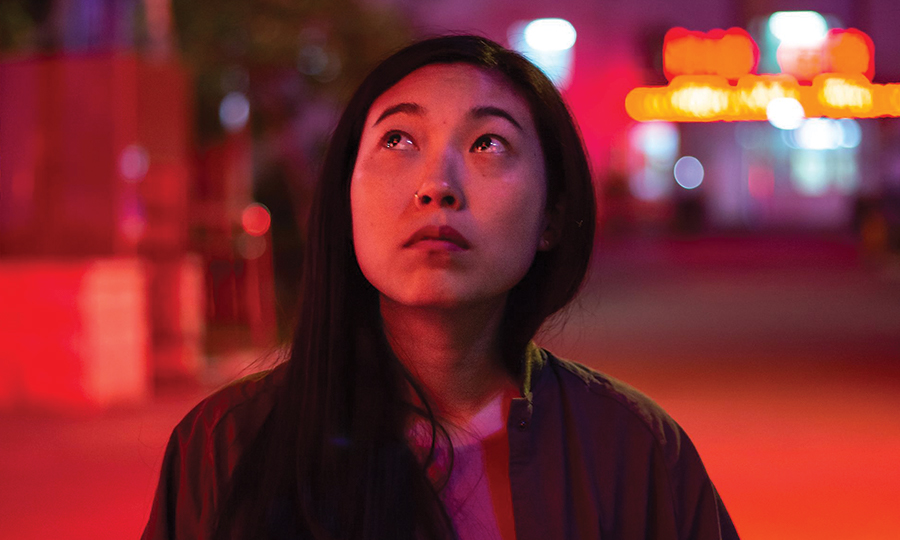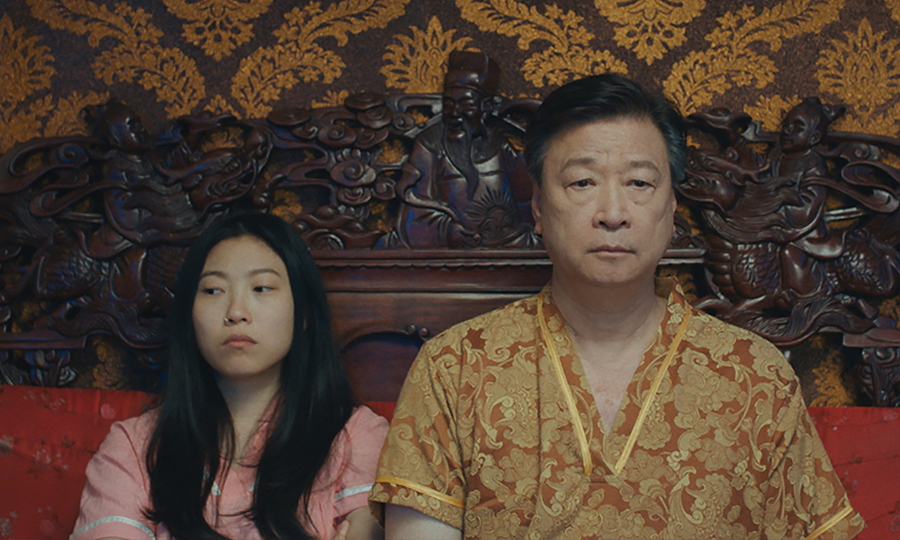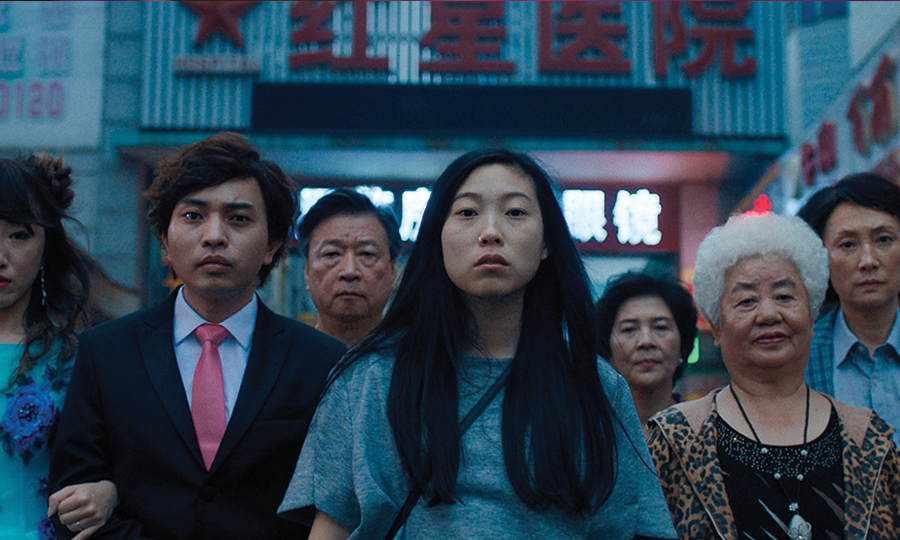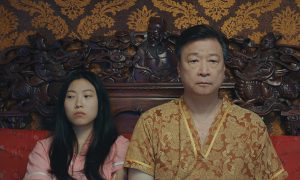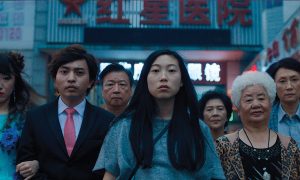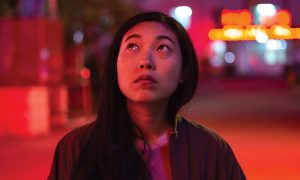‘The Farewell’ introduces second-generation American storytelling to Hollywood
The cultural practice of second-generation Americans is in a forever-fluctuating state, deliberating between an adherence to the customs of their motherland and an assimilation into American lifestyle. As more and more children of immigrants enter the sphere of American adulthood, the dichotomy of contrasting cultures further tests the fate of second-generation Americans.
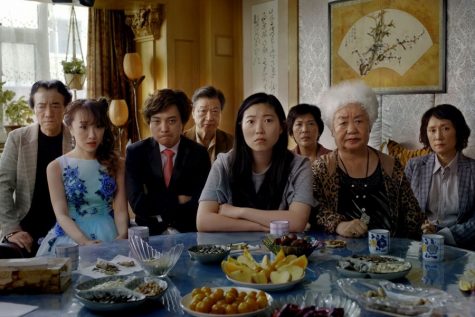
While this narrative has traditionally been excluded from dominant American pop culture, Lulu Wang’s “The Farewell” brilliantly encompasses the real struggles of this tension and stands out as one of the best films of 2019.
The film follows aspiring Chinese-American writer, Billi, played by comedian Awkwafina, as she learns of the impending death of her close grandma, colloquially referred to as Nai-Nai, played by Shuzhen Zhao.
Billi is shocked when she learns that her immediate and extended family have decided to withhold the news of Nai-Nai’s terminal illness from her, a common practice among traditional Chinese families. Billi is not only left with a burdening disagreement with her family’s decision, but also a personal need to give her Nai-Nai the proper farewell she deserves. The film draws upon this inner conflict and strife to highlight the pull of opposites omnipresent in the second-generation American experience.
Watching “The Farewell” as a second-generation American was a startling reckoning with the duality of cultural identity. As Billi was scolded by her Chinese family for being disrespectful of their traditions, I recalled every argument I have had with my mother about cultural disconnect. I both rooted for Billi to reverse the decisions of her family and also for her family and their cultural traditions to withstand the overwhelming Westernization of healthcare.
I could never quite figure out my personal plot agenda throughout the movie, and part of me believes that is why it was so incredible to watch.
Beyond the very significant impact of racial representation and the impressive accomplishment of a Hollywood box office hit that is predominantly in Mandarin, “The Farewell” is a remarkable milestone of visual storytelling and authentic acting.
The cinematography brought us, the audience, close to the little aspects of Nai-Nai and Billi’s lives that told their stories just as deeply as does their dialogue did. We felt like we were sitting at Nai-Nai’s circular dining room table, eating with the Wang family or next to Billi in the orange taxi cabs of Changchun, China. “The Farewell” was an intimate viewing experience that humanized aspects of Eastern culture traditionally ostracized and alienated by Western media.
Zhao’s portrayal of Nai-Nai indicated one of the most human acting performances Hollywood has witnessed in years. The strength, resilience and love of widowed matriarchs are qualities Asian people know all too well from the women in their lives. Zhao effortlessly embodies each and every audience member’s grandmother and brings out a generational love often forgotten in college adulthood.
The first thing we all did after watching “The Farewell” was call our Nai-Nais, Nanis and Dadis.
As of July 2019, the actual grandmother of Wang, the inspiration for Nai-Nai, had still never learned that she had been diagnosed with a terminal illness. This only brings the story closer to the lives of second-generation Americans navigating the realms of pop culture and media, who are forced to reckon with a world completely outside of their grandparents’ and, in many cases, parents’ understanding.
Wang not only showed us, on-screen, the disconnect between motherland relatives and second-generation Americans’ Western lives, but also demonstrated the separate spheres of second-generation Americans and motherland families.
Though “The Farewell” was Zhao’s acting debut, the majority of acting praise and critique fell upon up-and-coming actress Awkwafina. Her performance in “The Farewell” was a deep opposition to her well-known roles in films such as “Crazy Rich Asians” and “Ocean’s 8.” In these performances and other appearances in music videos, reality shows, and commercials, Awkwafina had been consistently accused of being a “culture vulture” and appropriating Black identity inappropriately.
https://twitter.com/DemiDlamini/status/1162423760630079489
“The Farewell”’s truth and authenticity to the second-generation American experience is a testimonial that cultural appropriation is a disgusting robbery of cultural legitimacy. The stories of marginalized and oppressed peoples are best told when it is the very marginalized and oppressed peoples telling those stories.
Wang’s ability to draw from her lived experience as a second-generation American is likely paramount to the success of “The Farewell”’s vulnerability. Awkwafina’s record of cultural appropriation is not only theft, but also a contribution to the failure of Hollywood’s existing inauthentic storytelling.
The empowerment “The Farewell” provides second-generation Americans was accomplished best through its honest storytelling, intimate visuals, and genuine acting. The future of Hollywood will be best transformed by a transition to just this. Hopefully, Awkwafina can take a lesson from Wang and learn to tell her own story first before ever stealing the culture of others’.
Your donation will support the student journalists of Tulane University. Your contribution will allow us to purchase equipment and cover our annual website hosting costs.



